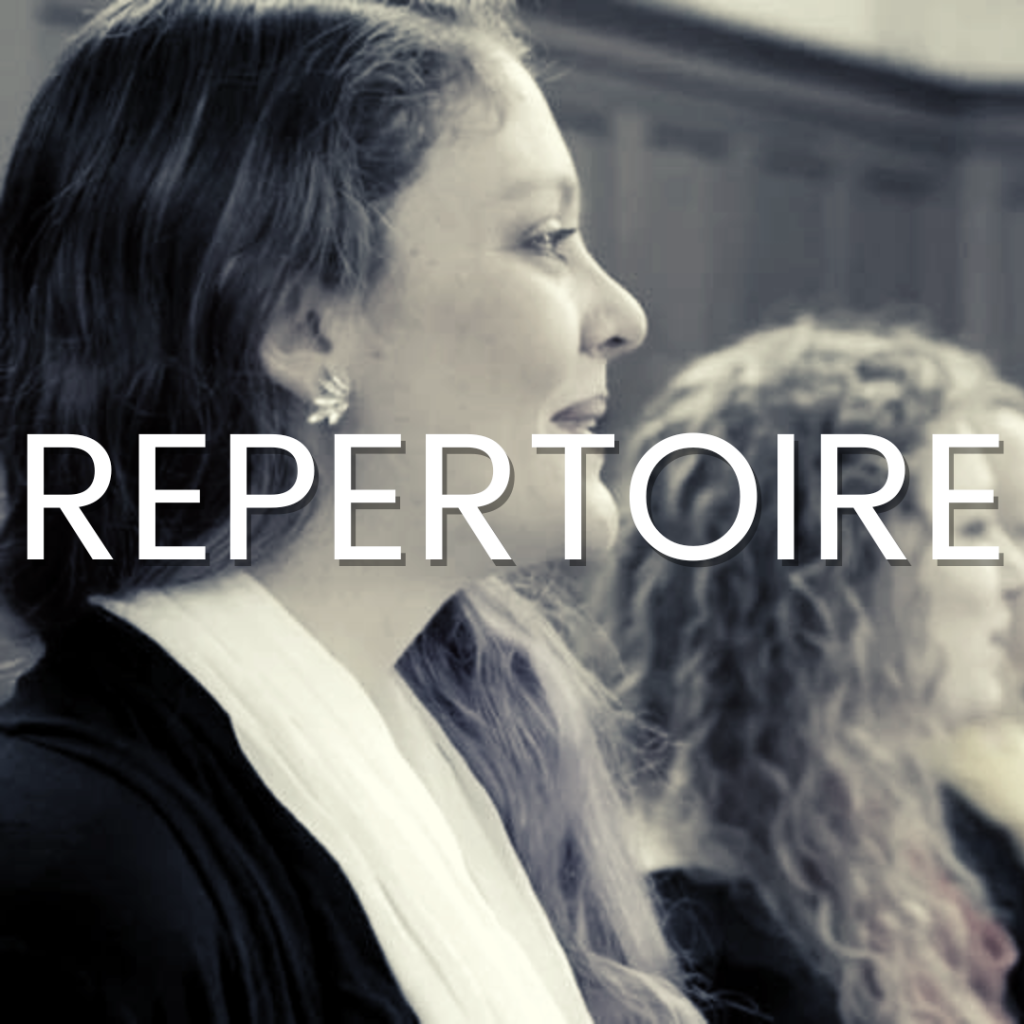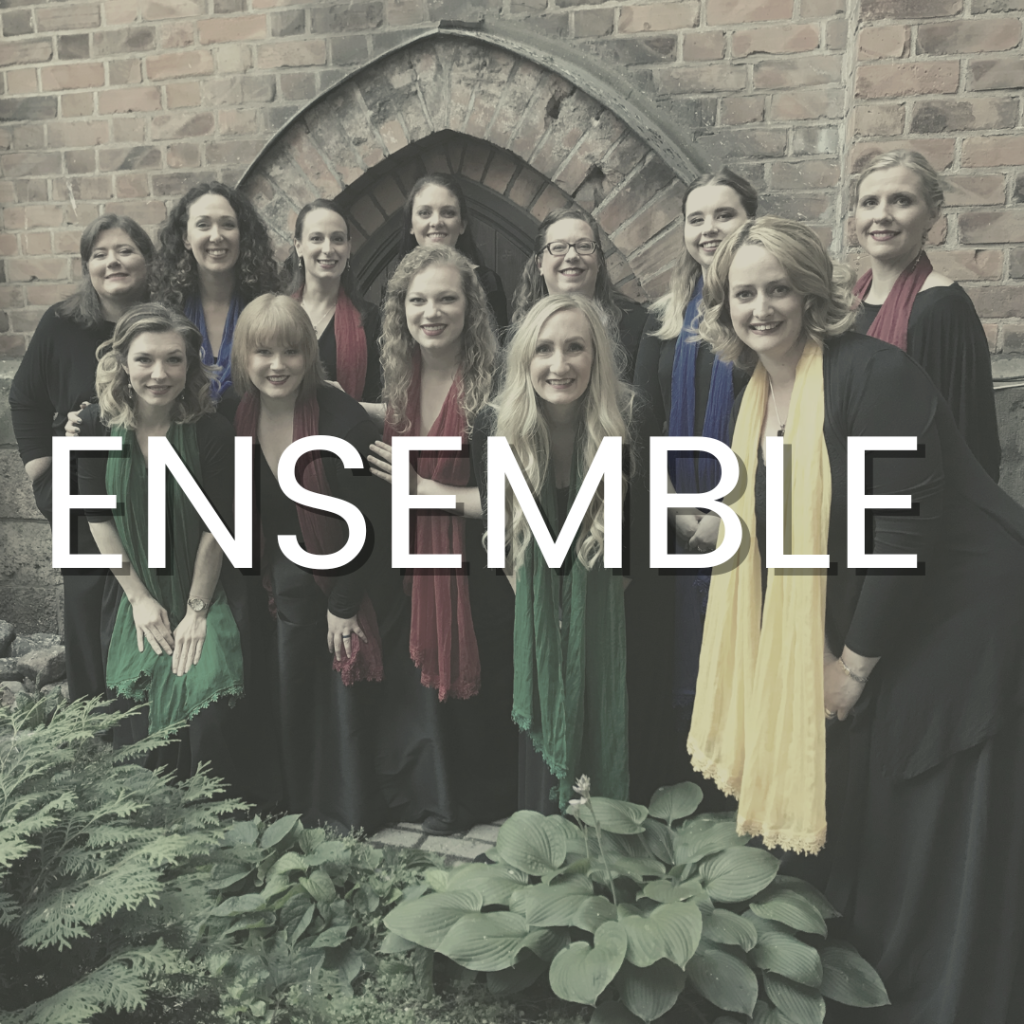About Mägi Ensemble

The Mägi Ensemble is a professional SA vocal ensemble that specializes in music from the Baltic region of Estonia, Latvia and Lithuania. We perform and record music from these countries and promote new choral works from Baltic women composers. Our vision is to use the power of music to connect with the community and continue to celebrate cultural heritage through the arts. We exemplify the values of cultural understanding, community, quality and commitment. Our philosophy as both a specialized repertoire ensemble and a treble ensemble is to demonstrate the effect that music can have for empowerment, both in social responsibility and gender identity.
Specializing in music from all three countries in the Baltic region, the Mägi Ensemble holds a unique position representing each country individually and the unifying aspects of the region as a whole. One of our most significant annual performances is the Baltic Deportation Memorial Service, where all three Seattle area Baltic communities come together to honor and remember those who were brutally taken from their families in June of 1941. We collaborate regularly with members of the Baltic community in the Seattle region and throughout the United States, and have cultivated relationships with ensembles and composers in each of the Baltic countries. The Mägi Ensemble has also sung for visiting Ambassadors from Latvia and Lithuania as well as past Latvian president, Andris Bērziņš and past Estonian president Toomas Ilves.
Our mission and music informs our collaborative rehearsal style where the musical, artistic, and personal contribution of each member is integral to the success of the ensemble. The Mägi Ensemble is proud to have cultivated an environment welcoming and affirming to the LGBTQIA+ community and has several members representative of those identities.



Ester Mägi
Ester Mägi (1922-2021) spent her youth in the Toompea region of Tallinn, Estonia, where she heard the bells of the church tower daily and began playing the piano after hearing and mimicking her sister’s repertoire. She attended the Tallinn Conservatory (Estonian Academy of Music) as a piano major, but began to develop problems with her hands. It was at this time that she turned her attention to composition and graduated in 1952. She was a student of Mart Saar and spent quite a bit of time working with him on folk song collection. Mägi continued her studies at the Moscow Conservatory with Visarion Shablin.
Along with composing, Ester Mägi taught music theory at the Tallinn State Conservatory from 1954-1984 and became a professor of music theory in 1977. In 1999, she was awarded an honorary doctorate degree by the Estonian Academy of Music and Theatre.
Ester Mägi has written over 80 choral compositions of various voicings. She is inspired by traditional folk song structures but uses them as inspiration rather than taking them in whole. Although the popularity of Arvo Pärt and Veljo Tormis have brought the awareness of Baltic music to a new level in the past few years, there is an immense amount of quality literature
that the music community needs to hear, study and perform. The choral works of Estonian composer Ester Mägi represent a genre of music that combines the tradition of folk music style with the innovation and creativity of contemporary harmonies
and voicings. Ms. Mägi has drawn from the traditional Setu and folk melodies, but then has used those formulas as a springboard to compose original melodies. This combination of compositional techniques brings life, newness, and vitality to the old traditions which, in turn, allows them to continue through the generations. (Photo credit: Rene Jakobson)

Board of Directors
Dr. Heather MacLaughlin Garbes, Founder and Artistic Director
Julie Parsons– Associate Conductor and Secretary
Ailisa Newhall- President
Monica Armstrong- Treasurer
Stephanie Bull – Marketing and Social Media Director
Elizabeth Mitchell- Special Events Coordinator
Peter Garbes– Managing Director
Dr. Guntis Smidchens: Head of the Baltic Studies Program, University of Washington
